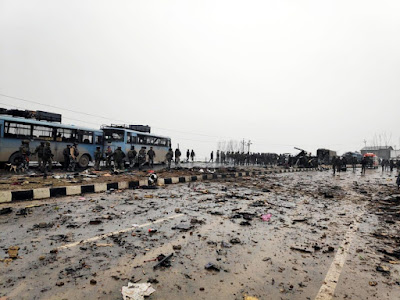The History of the Republic of
India begins on 26 January 1950:
Nation within the British Commonwealth on 15 August 1947. Concurrently the Muslim-majority northwest
and east of British India was separated
into the Dominion of Pakistan, by the partition of India. The partition led to a population transfer of more than 10 million people between India and
Pakistan and the death of about one million people. Indian National Congress leader Jawaharlal Nehru became the
first Prime Minister of India, but the leader most associated with the independence struggle, Mahatma Gandhi, accepted no
office. The new constitution of 1950 made India a democratic
country.
The Nation faced
religious violence, casteism, naxalism, terrorism and regional separatist insurgencies,
especially in Jammu and Kashmir and
northeastern India. India has unresolved territorial disputes with China, which in 1962
escalated into the Sino-Indian War, and with Pakistan,
which resulted in wars in 1947, 1965, 1971 and 1999.
India was neutral in the Cold War, but purchased its military weapons from the Soviet Union,
while its arch-foe Pakistan was closely tied to the United States and the
People's Republic of China.
India is a nuclear-weapon state,
having conducted its first nuclear test in
1974, followed by another five tests in 1998. From the 1950 s to the 1980 s,
India followed socialist-inspired policies. The economy was
influenced by extensive regulation, protectionism and
public ownership, leading to pervasive corruption and slow economic growth. Beginning
in 1991, neoliberal economic reforms have
transformed India into the third largest and one
of the fastest-growing economies in
the world, though corruption remains a pervasive problem. Today, India is
a major world
power with a prominent voice in global affairs and
is seeking a permanent seat in the United Nations Security Council.
Many economists, military analysts and think tanks expect India to become
a superpower in the near future.



No comments:
Post a Comment